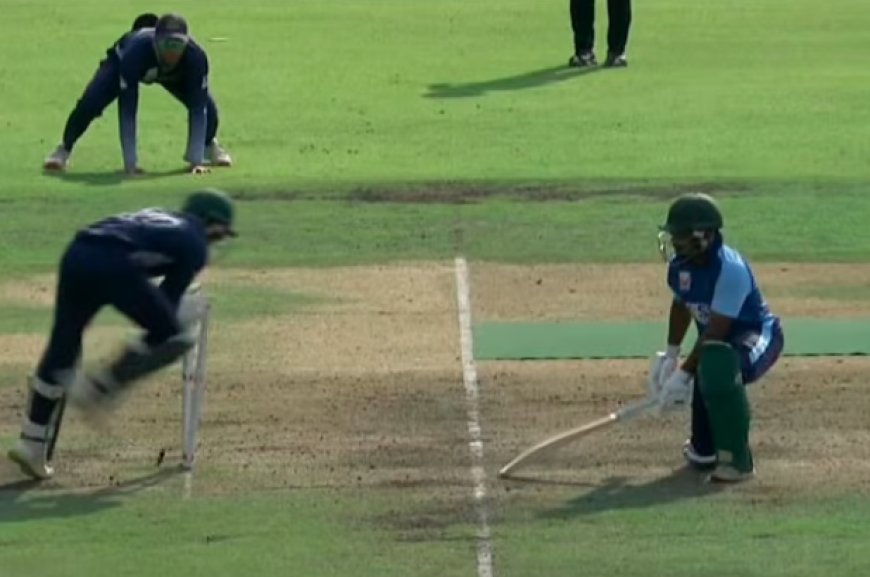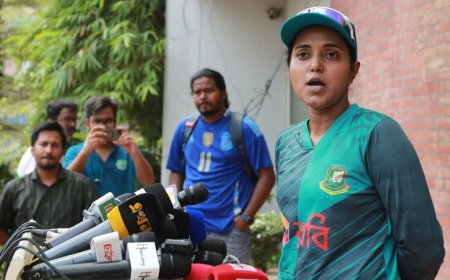The BCB’s Anti-Corruption Unit (ACU) has recommended imposing a minimum five-year ban on Sabbir
A document obtained reveals that the ACU found Sabbir guilty of violating several provisions of the BCB’s Anti-Corruption Code by interacting with suspected bookmakers and neglecting to report the approaches.

Shinepukur batsman Minhazul Abedin Sabbir is facing the likelihood of a lengthy suspension after the Bangladesh Cricket Board’s (BCB) Anti-Corruption Unit (ACU) recommended a minimum five-year ban over alleged involvement in match-fixing, officials confirmed Monday.
According to a document obtained by Daily Sun, the ACU determined that Sabbir violated several provisions of the BCB’s Anti-Corruption Code by maintaining contact with suspected bookmakers and failing to report approaches.
The matter has now been referred to the BCB’s Anti-Corruption Tribunal for formal proceedings under Article 5 of the Code.
“Based on the available evidence, we are recommending at least a five-year ban from all forms of cricket, which could extend to eight or even ten years,” the report stated, citing the gravity of the offence and the need for deterrence. It also referenced Mohammad Ashraful’s eight-year suspension as precedent for imposing a tough penalty.
Investigators found that Sabbir had been in frequent contact with a foreign phone number believed to be linked to international bookmakers during the Dhaka Premier League (DPL) earlier this year. Officials raised concerns about possible involvement of global syndicates and called for coordination with the ICC’s Anti-Corruption Unit and, if needed, Interpol.
Alongside disciplinary action, the ACU urged the BCB to bolster safeguards against corruption in domestic cricket. Its proposals include stricter communication restrictions in dressing rooms, deployment of anti-corruption officers at key fixtures, and live monitoring of betting markets to detect unusual activity.
The report also underlined the need for more robust player education, reminding cricketers of their obligation to report suspicious approaches immediately and suggesting regular training workshops and scenario-based sessions.
It further criticised delays in action, pointing out that Sabbir could have been provisionally suspended earlier once substantial evidence was gathered. “This is standard ICC practice to safeguard the integrity of the game during investigations,” it noted.
If found guilty, Sabbir will also be required to complete rehabilitation programmes before resuming cricket, which may include mentoring young players on the risks of corruption, a practice followed in other ICC member countries.
Officials stressed that while the incident has hurt Bangladesh cricket, it has also reinforced the BCB’s resolve to combat corruption. “This case is a wake-up call and will serve as a model for stronger anti-corruption measures going forward,” the report concluded.
The controversy intensified after footage from Shinepukur’s match against Gulshan went viral. In the 36th over, opener Rahim Ahmed was stumped after inexplicably stepping out of his crease against left-arm spinner Nihaduzzaman without attempting a return. Sabbir’s dismissal in the 44th over raised even more eyebrows—after taking guard, he crouched inside the crease before leaning forward and allowing Gulshan wicketkeeper Mahidul Islam Ankon to complete an uncontested stumping.
What's Your Reaction?




















































































